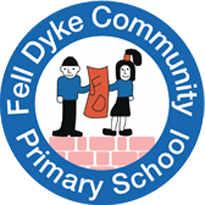Reading
The Early Years Foundation Stage provides many opportunities for the children to be immersed in language and early reading routines as we seek to develop their interest in books. This includes regular story time and themed role play, with plenty of repetition of stories that the children will enjoy and can ultimately join in with. Activities follow on from story time, helping children understand common story conventions such as things happening in a set order. Phonics teaching takes place daily to develop early reading and build familiarity with graphemes and phonemes. As the children move through EYFS, they are exposed to a wide variety of text types and begin to make links between reading, extracting meaning from reading and writing. Regular reading is acknowledged and rewarded through our Pirate’s Treasure Reading Reward approach: prizes of books are presented for regular home reading.
In Key Stage 1, children continue to learn phonics, generally finishing this aspect of their learning by the end of Year 1. From then on, their phonics knowledge continues to be developed through their ongoing guided reading in school and the introduction of a spelling programme in Y2 to bridge the specific challenge of choosing from the graphemes (different spellings for sounds) when they are spelling and the introduction of spelling rules. Any children who have gaps in their phonics understanding undertake more intensive intervention from Year 2 onwards, for as long as necessary – these children are regularly assessed to understand their progress. Reading comprehension teaching begins once children have completed the Read Write Inc. programme in Year 2. At this stage, children’s reading books are carefully matched to their reading ability by adults.
If any children require further phonics teaching, this will always take priority over any other aspects of the teaching of reading – fluency is key.
In Years 2 and 3, we use an approach called 'Reading Theatre' to improve the children's reading fluency. By focussing on one piece of a story for an entire week, children practice reading at the right pace and with good expression, having the chance to perform a reading of the text on the final day.
In Key Stage 2, reading is taught as a specific lesson with the whole class. Teachers tackle the skills of retrieval, deduction and inference specifically. Teaching of a new text, or part of a text, is done over four days. On the first day, children read a new text: with support they identify the purpose and audience, pick out key features, discuss relevant language and vocabulary and have the chance to discuss and answer questions. On the second day, the teacher shows how to answer questions that are the focus for that half term and the children have the chance to answer similar questions about the same text too. The final days allow the teacher to help children make decisions about how answers can be improved and how to use language to discuss an answer more accurately. We use a range of texts, fiction and non-fiction. This year we have added longer excerpts from story books to support the children’s understanding of how stories are built up over longer sections.
All Key Stage 2 children use Accelerated Reader as soon as they are ready to access it to ensure they are reading at an appropriately challenging level. All Key Stage 2 books have been given a level. This system allows children to complete a short quiz and, if successful, move up to the next level. Children are free to choose their own books but this is regularly monitored by class teachers. Year 6 use an additional online tool called Reading Plus that works to rapidly increase how quickly they can read a piece of writing while taking in key information. Year 6 use online software called Reading Plus to further improve their fluency and comprehension (the rate at which they can read and still understand) ahead of the increase in non-fiction) reading in different subjects in secondary school.
